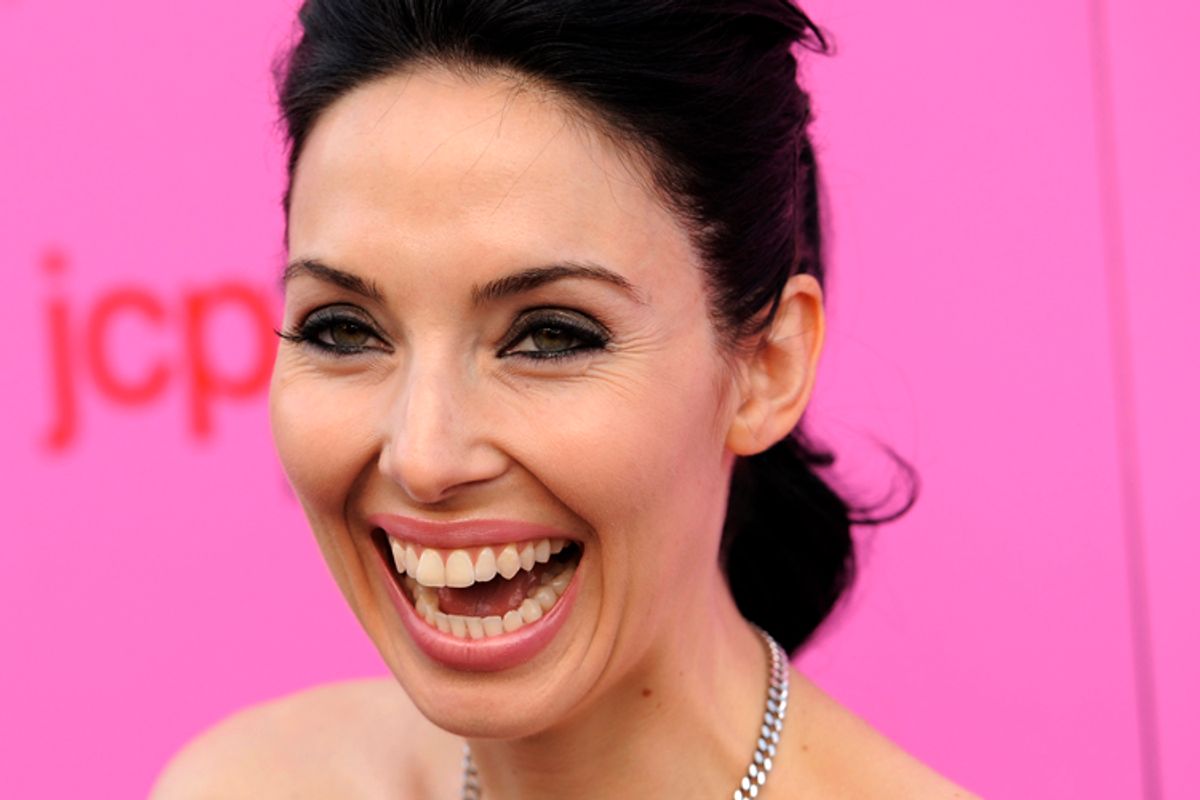Ladies, don't you just hate it when you're ovulating? And guys are, like, not? Am I riiiiiiight?
It hasn't even premiered yet, but Whitney Cummings' aggressively promoted new sitcom may just be the most unself-awarely retro-sexist show on television. And in a season that's giving us Playboy bunnies, sexy stewardesses and Charlie's Freaking Angels, that's quite an accomplishment.
As you likely already know from the deluge of magazine ads, billboards and canned laughter-heavy promos, "Whitney" is about a woman who's happily unmarried to her scruffy yet adorable boyfriend. But lest you think this is some subversive takedown of biological clocks and enforced monogamy, the jokes about how a woman's "silent treatment" isn't really a punishment -- probably not. Previews for "Whitney" include -- I am not kidding -- references to Cosmopolitan magazine, cupcakes, being "whipped," and whether or not men are like cavemen. There are also references to cellulite, looking fat, her period, and what women "really mean" when they talk. As Best Week Ever exasperatedly points out, the show's campaign might as well read, "Blah blah blah shopping. Blah blah blah PMS. Blah blah blah weight issues."
Yet it would appear that our conquest by the short skirt-wearing, cutesy gun necklace-sporting Cummings -- who writes her self-titled show and also co-created the marginally more promising "Two Broke Girls" -- is all but inevitable. A recent Sunday New York Times Magazine profile in which she describes herself as "the weird, quirky, funny girl" ominously warned that "There Is No Escaping Whitney Cummings."
"Whitney" may yet prove to be something other than the lame one-joke disaster NBC is currently showcasing it as. Who'd have thought "Cougar Town" would evolve into something funnier and more multidimensional than its dismal first few episodes? But despite the media blitz and near frantic promotion, is there really an audience for more clichés about how supposedly hilarious our gender differences are? The truly horrific "I Don't Know How She Does It," a 90-minute collection of "Men are like this, but women are like this!" jokes, sank like a rock in its opening weekend.
Yes, men and women are different. But humor comes from originality and specificity, the way that Alison Brie makes "Community's" Annie an uptight dork but a thoroughly rich character, or the way that Margaret Cho can wring wry wit out of real pain and anger. "Bridesmaids" was a movie about bridesmaids and managed to avoid sinking into the morass of tired "men are such beasts and girls are such girls" jokes. Sunday night's female Emmy nominees and winners -- smart, complicated, breathtakingly goofy women like Melissa McCarthy, Martha Plimpton, Jane Lynch and Tina Fey, among others -- prove that you can be funny and a woman without constantly having to be funny about simply being a woman. And America may just not get into that giant Hot Tub Time Machine back to the Comedy Barn, where the Token Female is doing a routine about why the line is always longer in the ladies' room.



Shares